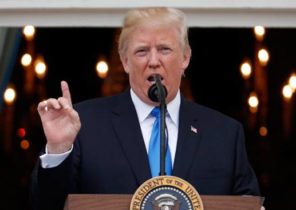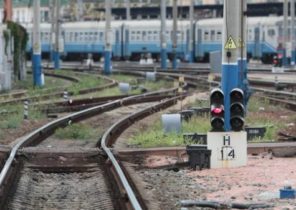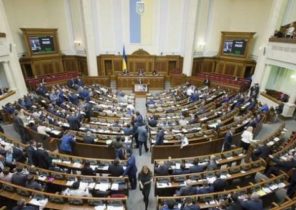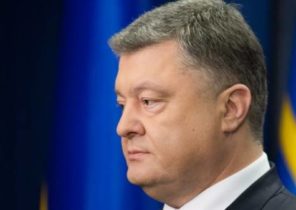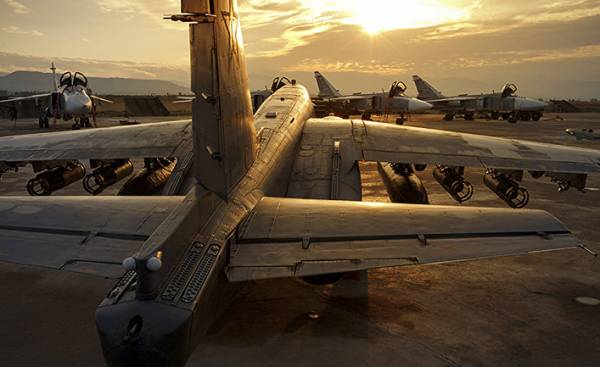
Moscow announced its intention to strengthen the naval and air infrastructure in Syria, to turn them into the basis for a long-term presence in Syria. Military confirmed that naval and air presence in Syria “is the basis for stability in the middle East”.
Chairman of the State Duma of the Russian Federation on defense Vladimir Shamanov announced that Russia intends to technically improve its naval base in the Syrian port of Tartus.
The official added that in the near future the defense Committee will vote on the issue of expanding the technical capabilities of the military base to fulfil the required tasks.
Moreover, Shamanov stressed that the presence of two Russian bases in Syria — the air in Hamima and Navy in Tartus, currently is a factor of stability in the middle East, which in the foreseeable future will contribute to the stabilization of the situation in the midst of conflict.
He noted that the effectiveness of Russian weapons has received worldwide recognition, the same can be said about the success of Moscow’s humanitarian operations, which serve to strengthen Russia’s prestige on the international level.
In the beginning of the year Moscow has published the text of the agreement signed between Moscow and Damascus, to establish a naval military base in Syria. So, this document contains the agreements to increase the area of the point of logistics Russian Navy in Tartus and about the entry of Russian military ships in the territorial and internal waters and ports of the Syrian Arab Republic.
July 14, the State Duma unanimously ratified the Protocol to the agreement on the placement of the group of military-air forces of Russia in Syria.
Deputy defense Minister Nikolai Pankov, speaking before the deputies of the state Duma, said that the adoption of this document will allow the Russian air force to conduct operations in Syria on a larger scale. Also, the official said that Damascus has already announced to Moscow that has completed all the preparatory procedures necessary for the Protocol’s entry into force.
According to Pankov, the implementation of this Protocol, which was signed in Damascus in January of this year, requires 20 million rubles per year ($3.5 million). He explained that the document addresses the issues associated with the placement of group of the Russian air force on Syrian territory performed its functions, as well as issues regarding movable and immovable property.
The official said that the Protocol, in particular, outlines the powers of the Russian military for the protection of the centres of Russian aviation. With regard to foreign and coastal protection of Russian bases, it is according to the items of the Protocol is the responsibility of the Syrian authorities, while responsibility for internal security, along with air defense, lies with the Russian officers.
For his part, the Chairman of the Duma Committee on international Affairs Leonid Slutsky said that the document, being “very important from the point of view of international law” also sets the rules for the movement of armored vehicles and other weapons used on land.
The official noted that the long-term military mission in Syria demands the establishment of modern infrastructure on the Russian military facilities. This contributes to the protection of the Russian military, which is the main purpose of the new document.
According to Slutsky, the Protocol defines the tasks of the Russian air force in Syria for a period of 49 years with possibility of extension for another 25 years. He added: “Given the current situation with the presence of terrorist organizations in Syria, we understand that, unfortunately, we’ll have to stay in this country for a long period of time, and we will continue to be at the forefront front in the fight against international terrorism in Syria to prevent it from spreading to the Russian and European territory.”
In turn, the Ministry of foreign Affairs of Russia has declared that the establishment of a zone of de-escalation in the South-Western region of Syria has become an example for other regions in Idlib, in the North of HOMS and Eastern ghouta.
So the official representative the Ministry of foreign Affairs Maria Zakharova said that the situation in Syria remains tense, but there are positive changes that allow you to hope that everything goes to the long-term political settlement of the Syrian conflict and restore order throughout the country.
In particular, Zakharov pointed to the ongoing clashes between the terrorist groups in Eastern ghouta and Idlib.
At the same time, Zakharova again criticized the “White helmets”, calling this organization pseudohumanitarian and stressing that in Moscow, it is treated as another element of large-scale information campaign to discredit the government of Syria.
According to Zakharov that currently need to make every effort to maintain the process of stabilization of the political and military situation in Syria and creating conditions for peace and the elimination of the terrorist threat posed by Islamic state (a terrorist organization banned in Russia. — approx. ed.), “Tahrir al-sham” (a terrorist organization banned in Russia. — approx. ed.) and other groups.
In addition, Moscow welcomed the statement by the UN special envoy to Syria Staffan de Mistura about the need to set priorities to address the challenges associated with settlement in Syria. A source in the Ministry of foreign Affairs of Russia told “al-Hayat” that Moscow has always called for the formation of a clear agenda regarding settlement of the Syrian conflict, and in this group first place is always occupied by the fight against terrorism. In addition, the source expressed satisfaction with the fact that Western partners are beginning to understand the position of Russia and inclined to support it.
The 14th of July to the end of the next round of talks in Geneva, de Mistura said that the Syrian crisis is complex, but to begin the fight against terrorism, it needs to be resolved, and this view is shared by all stakeholders.
He expressed confidence that “today is dominated by political realism,” pointing out that to resolve the Syrian crisis the parties need to simplify the path towards a possible solution, as the situation in Syria is extremely complex, and it seems that a settlement is not possible.
The UN special envoy said that the crisis in Syria began with the revolution, he was then given a regional dimension, and then escalated into war between the neighbours, taking the form of international conflict.
He added that to achieve the settlement of the Syrian crisis it is necessary to overcome all the difficulties, ranging from the threat posed by terrorism, which, in turn, fueled the conflict.
Finally, de Mistura stressed that if a political settlement cannot be reached, the so-called “Islamic state”, which became “a dangerous parasite,” will appear in other places and under other names, following the example of what happened in Iraq.


